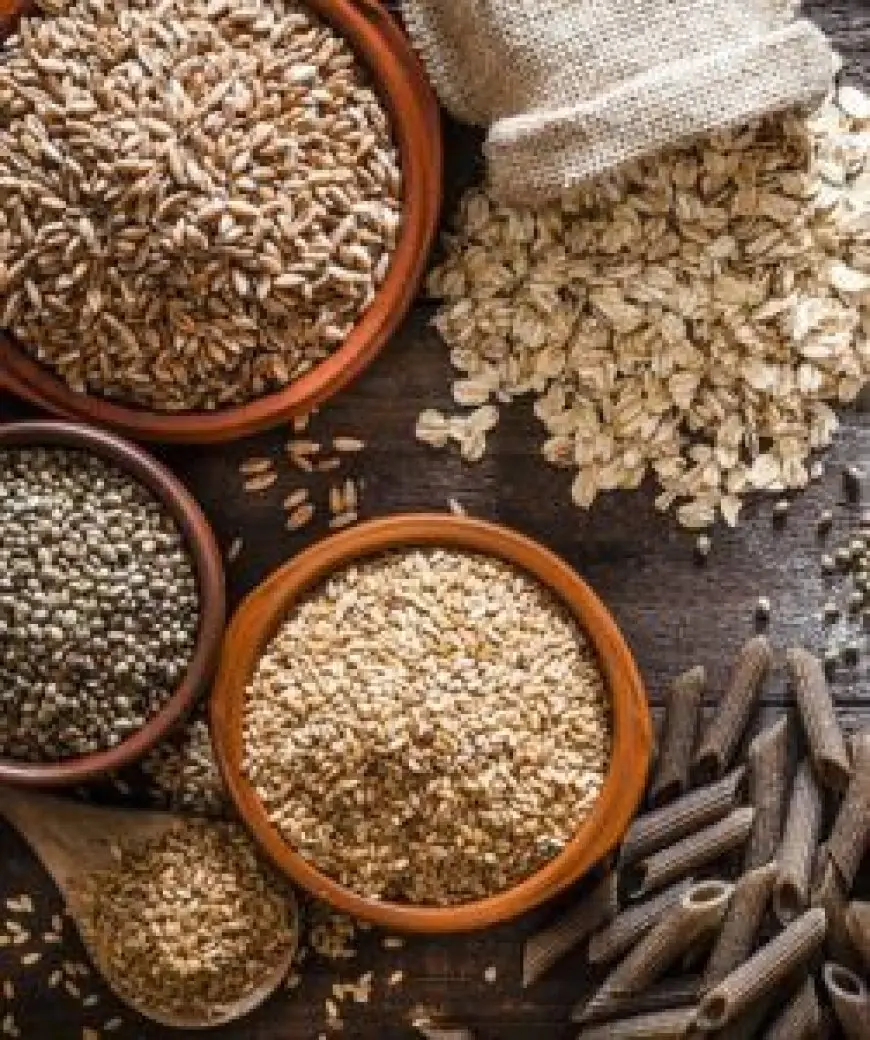The Benefits of Whole Grains in Your Diet
The Benefits of Whole Grains in Your Diet

Whole grains are a powerhouse of nutrition and play a vital role in maintaining a healthy diet. Unlike refined grains, whole grains contain all parts of the grain kernel—the bran, germ, and endosperm—providing a wealth of nutrients that contribute to overall well-being. Including whole grains in your meals can lead to numerous health benefits, making them a valuable addition to any diet.
Rich in Nutrients
Whole grains are packed with essential nutrients, including fiber, B vitamins (like thiamin, niacin, and folate), iron, magnesium, zinc, and antioxidants. These nutrients support energy production, immune function, and overall health.
Promote Digestive Health
The high fiber content in whole grains aids digestion by promoting regular bowel movements and preventing constipation. Fiber also nourishes beneficial gut bacteria, which play a crucial role in maintaining a healthy digestive system.
Help Maintain a Healthy Weight
Eating whole grains can help you feel full longer due to their fiber and protein content. This satiety can reduce overeating and support weight management efforts. Foods like quinoa, oats, and brown rice are excellent choices for those looking to manage their weight without sacrificing nutrition.
Lower the Risk of Chronic Diseases
Regular consumption of whole grains has been linked to a reduced risk of chronic conditions such as heart disease, type 2 diabetes, and certain cancers. The fiber and antioxidants in whole grains help reduce inflammation, lower cholesterol levels, and improve blood sugar control.
Support Heart Health
Whole grains, particularly oats and barley, are rich in soluble fiber, which helps reduce LDL ("bad") cholesterol levels. Additionally, the nutrients in whole grains, such as magnesium and lignans, support heart health by improving circulation and reducing the risk of hypertension.
Improve Blood Sugar Control
Unlike refined grains, which can cause rapid spikes in blood sugar, whole grains have a lower glycemic index. This means they are digested and absorbed more slowly, leading to steadier blood sugar levels. Whole grains are a great choice for people managing diabetes or those aiming to prevent it.
Boost Energy Levels
The complex carbohydrates in whole grains provide a steady source of energy throughout the day. Unlike sugary snacks, which cause energy crashes, whole grains release glucose gradually, keeping you energized and focused.
Versatile and Delicious
Whole grains come in a variety of forms, making them easy to include in your meals. Popular options include quinoa, brown rice, oats, barley, bulgur, farro, and whole-grain bread or pasta. They can be used in salads, soups, side dishes, or as the base of a meal.
How to Include More Whole Grains
- Start your day with oatmeal or whole-grain cereal.
- Use brown rice, quinoa, or farro as a base for meals instead of white rice.
- Choose whole-grain bread, pasta, or tortillas.
- Snack on air-popped popcorn or whole-grain crackers.
- Add barley or bulgur to soups and stews for extra texture and nutrition.
Making the switch to whole grains doesn’t have to be overwhelming. Start by replacing refined grains in your diet with whole-grain alternatives and enjoy the health benefits they bring.







